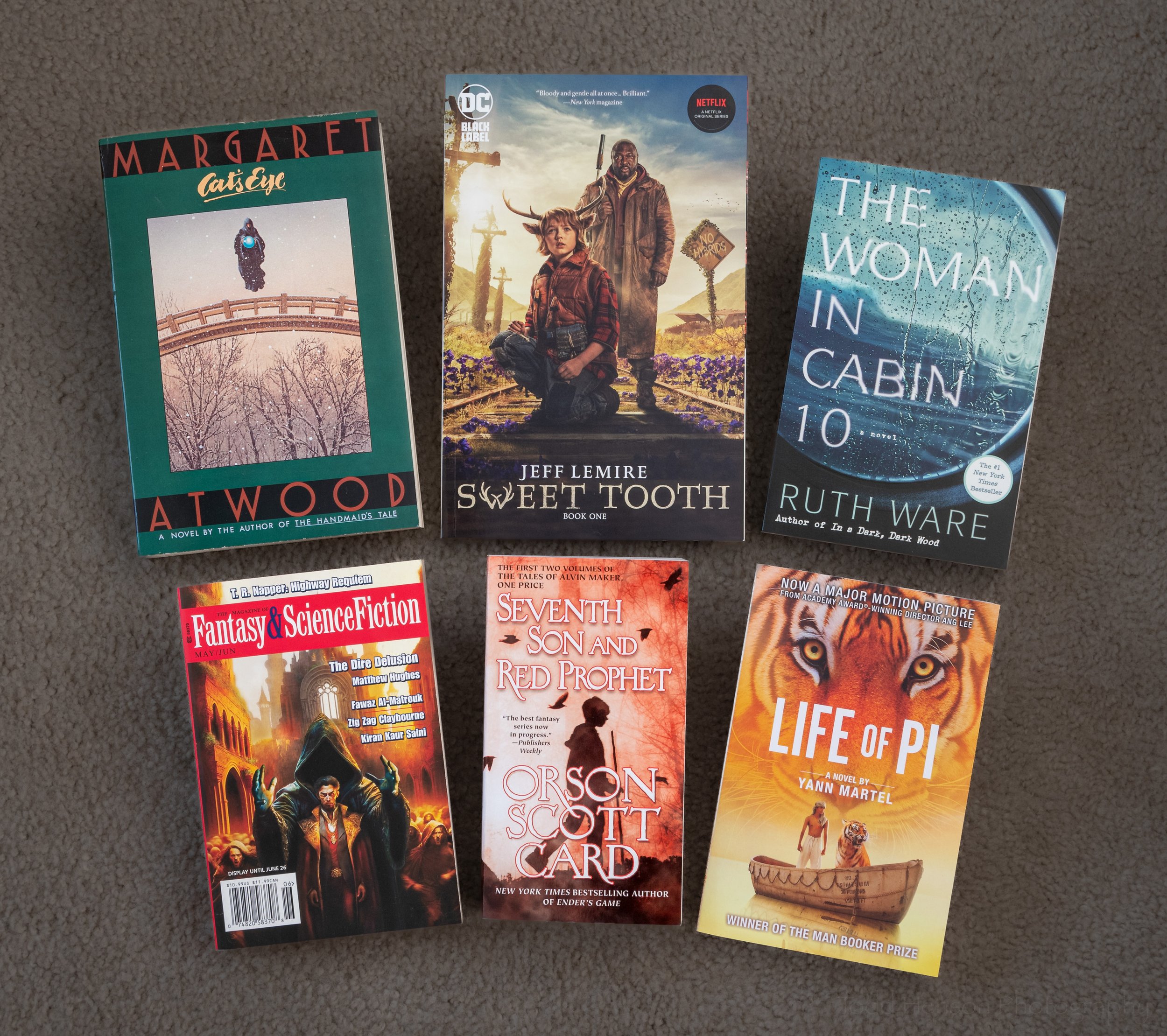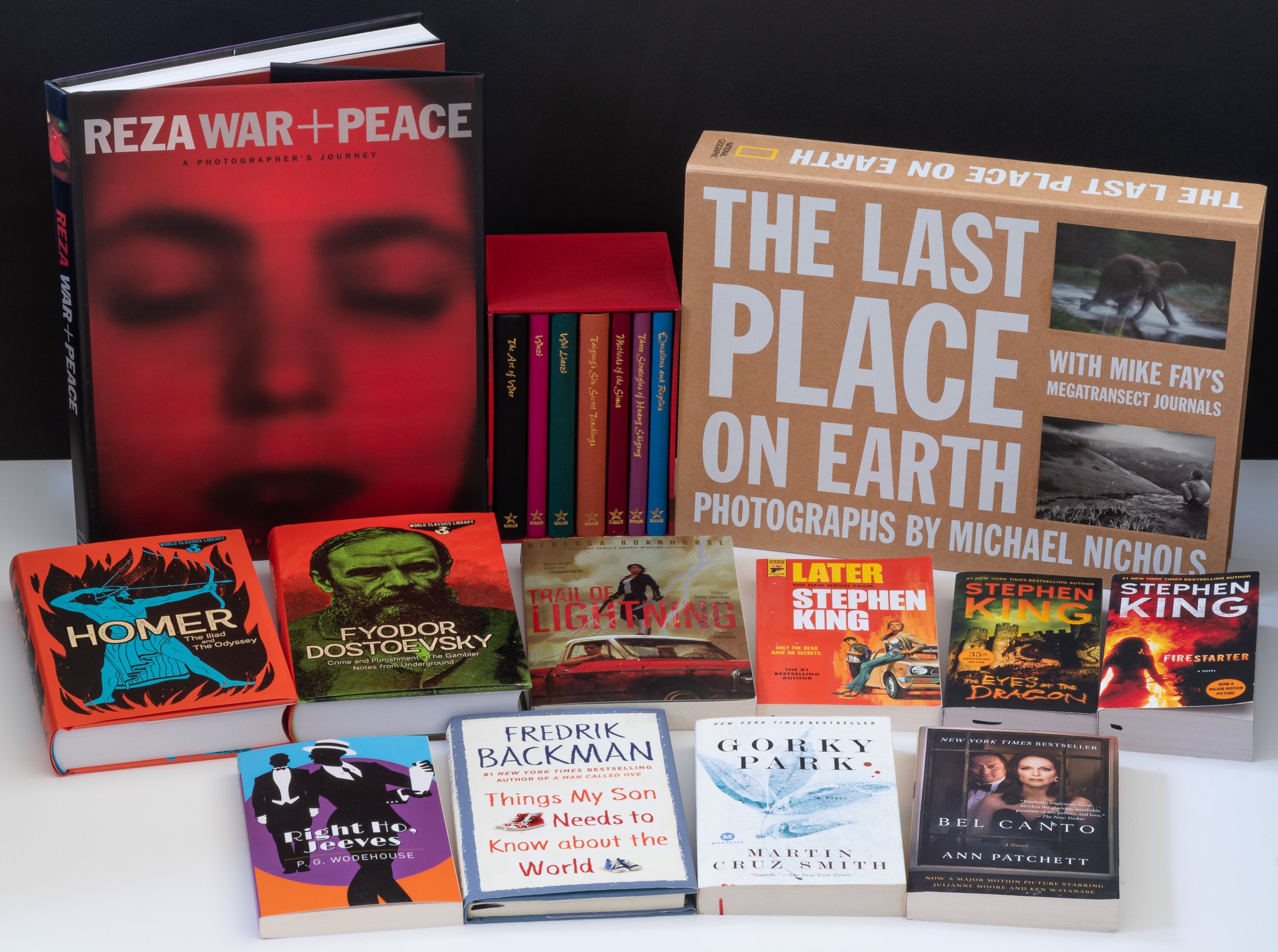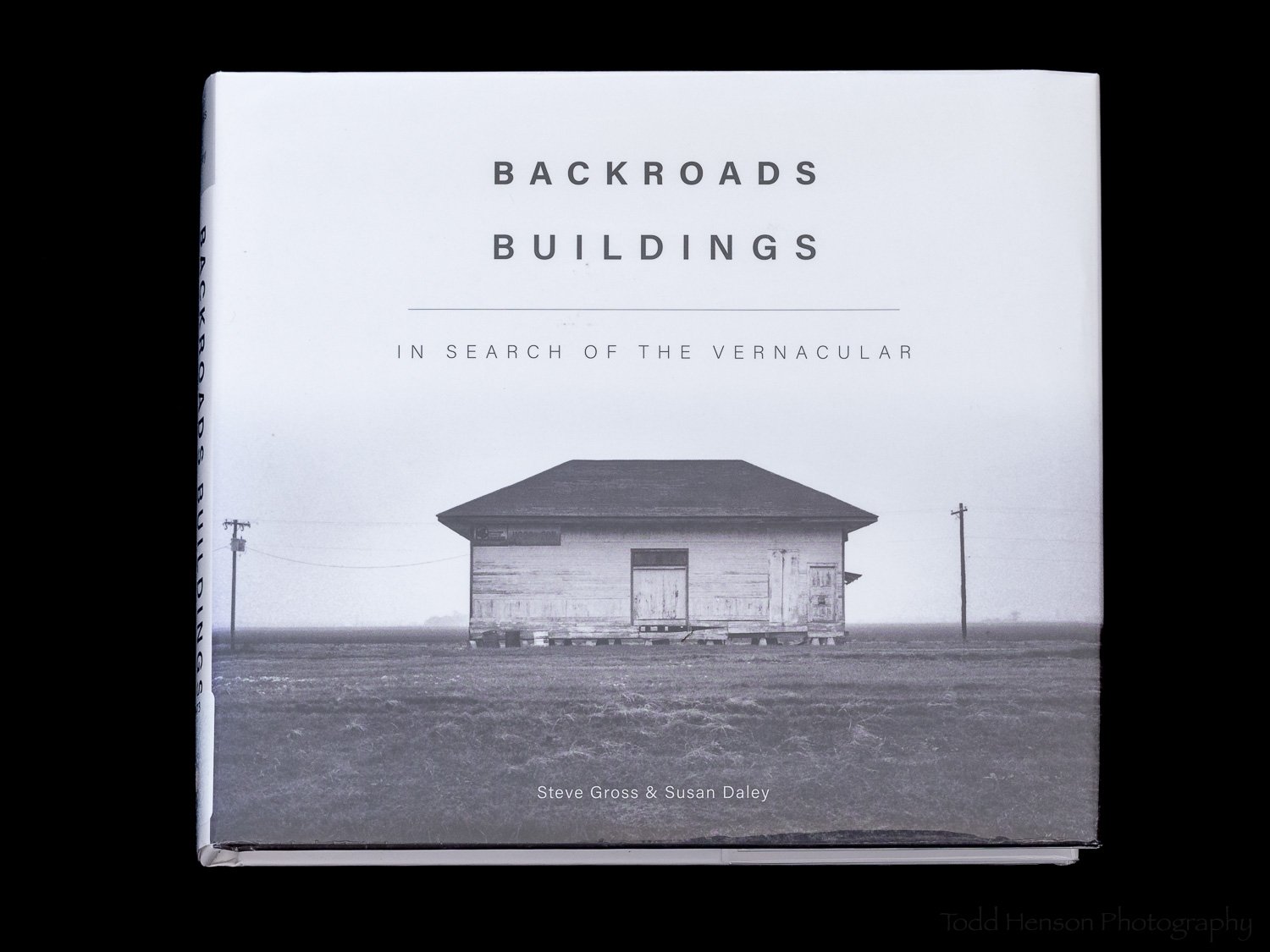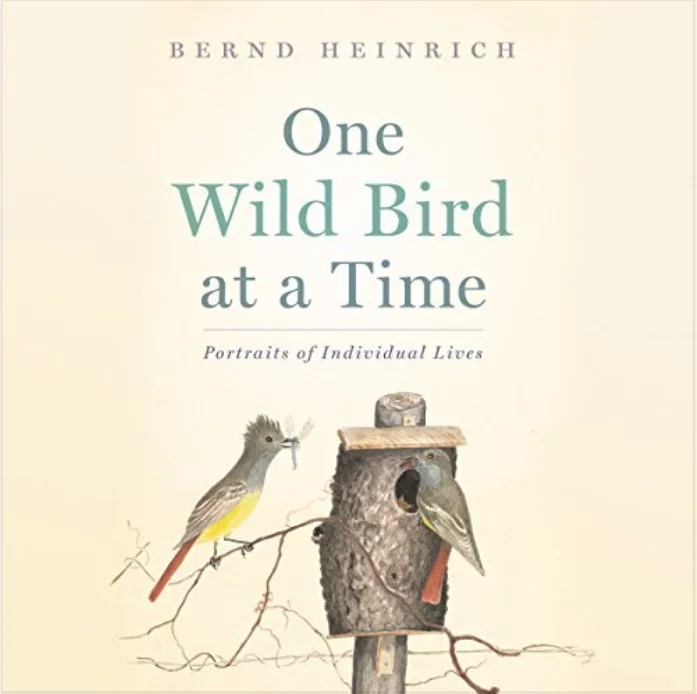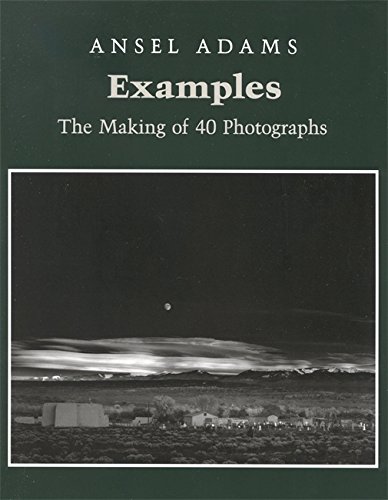Tone Poems Book 1 — Opus 1, 2 & 3, by Bruce Barnbaum & Judith Cohen
This post contains affiliate links and I’ll be compensated if you make a purchase after clicking on my links, though this won’t cost you anything extra. Thanks much!
Tone Poems is a fascinating concept, intended to span three book volumes with each volume separated into three opuses, as in musical compositions. This is appropriate because each volume includes a CD full of music specifically chosen to accompany the photography. Each opus is on a specific topic or theme, and the music and photography are both arranged around these. This is not something I’d ever thought of before, so I applaud Bruce Barnbaum, the photographer, for teaming up with Judith Cohen, the pianist, and taking on this challenge.
This review covers book 1, which includes opuses 1, 2 and 3. From what I’ve seen it appears at this time only two books have been published, with the second book including opuses 4, 5 and 6.
Opus 1 Enigmas, Abstractions and Surprises
Tone Poems Book 1 — Opus 1, 2 & 3, by Bruce Barnbaum & Judith Cohen, Plates 3 - 4
Barnbaum talks about how we might listen to a piece of music we’ve never heard before but can already hum the next bar before hearing it. The same can be found when reading literature and knowing what will happen next. And in photography, being presented with what we expect to see. We might enjoy this but it doesn’t challenge us. But if he can create something that surprises us, something abstract or enigmatic, then it does challenge us, it lets loose our imagination to interpret as we will, each of us potentially seeing something different, and experiencing the work in our own unique ways.
“When the unexpected is mixed with artistic beauty, magic results. It leaps out from the melodies, rhythms, timbres, or orchestration in music (and what can be more abstract than music?). It springs from clever or descriptive use of words, phrases, or plot and character development in literature. It comes alive with innovative use of light, line, form, pattern, overall composition or subject matter in the visual arts.”
Tone Poems Book 1 — Opus 1, 2 & 3, by Bruce Barnbaum & Judith Cohen, Plates 29 - 30
Much of the music chosen for this opus felt full of energy and tension, sometimes through the entire piece. Some pieces had quieter moments interspersed with the frenetic, taking us on a bit of a rollercoaster ride. For me, the beginning of Serge Prokofiev’s Visions Fugitives #14 and #15 was appropriate for some of the earlier images that I thought were of ice, as it almost sounded like the cracking and groaning sounds of these huge ice sheets. And yet the photos were of rock and stone walls, so perhaps it was the sounds of cracking stone. Then with Aaron Copland’s Piano Sonata, 2nd Movement, I heard sounds like dripping water, that worked well with the photos of water, or those of swirling patterns. Leonard Bernstein’s Clarinet Sonata, 2nd Movement, was a welcome change after the first few pieces, being a little more relaxed, less frenetic, still building but more playful. And the final works by Serge Prokofiev, Visions Fugitives, #10, #11 and Five Melodies for Violin, #3, #5, felt almost like a mix of all the previous pieces, full of tension but also playfulness.
It was strange listening to these pieces while viewing the photographs. It’s not something I often do, or not intentionally anyway. I might have music playing in the background while viewing photography, but it isn’t music chosen specifically to accompany the photography. But here, these pieces were chosen to go with the photographs of this opus. Granted, music and photography are both subjective art forms, so music chosen by one person to go with a set of photography might not work as well for another. But it’s an interesting experience, just the same.
Opus 2 Darkness and Despair
Tone Poems Book 1 — Opus 1, 2 & 3, by Bruce Barnbaum & Judith Cohen, Plates 37 - 38
The 2nd opus came out of a specific set of circumstances and experiences. A severe snowstorm that destroyed very large numbers of trees, and a small, old, twisted log found in the debris. Losing an environmental fight against a mining company over uses of a tract of land. A fantastic and moving photography workshop with another photographer. Somehow all these experiences melded together and resulted in Barnbaum photographing the old, twisted log, creating a body of work that, to him, summed up the pain and bitterness of some of the experiences.
The music seems to aptly reflect the emotions he felt, and to me, does seem appropriate to the subject matter. Alexander Scriabin’s Preludes, Opus 11, #14, #6, Opus 16, #2, and Opus 11, #14 feel full of frustration and anger, tension and despair. Sergei Rachmaninoff’s Prelude in B minor felt more like a quiet contemplation of loss. And Johannes Brahms’ Intermezzo in A major, Opus 118, though it didn’t feel as depressed and angry as the previous work, did have a strongly melancholic tone.
Tone Poems Book 1 — Opus 1, 2 & 3, by Bruce Barnbaum & Judith Cohen, Plates 43 - 44
This was a short section photographically, and yet it had many pieces of music to accompany it exhibiting a range of emotions, but that seemed to reflect some aspect of the emotions that prompted the creation of the photographs. The photographs have an almost surrealistic look to them, reminding me at times of Edvard Munch’s The Scream. Interestingly, I hadn’t yet read the section of notes on individual photographs at the end of the book, in which he acknowledges how one of the photos does bring to mind The Scream. At first he says he tried to avoid that, but later came to embrace it, realizing it actually helped convey the mood he was intending. And I don’t entirely know why, but a couple photographs, when listening to the music, brought to mind the loss of an unborn child.
Opus 3 Lyricism of the Land
Tone Poems Book 1 — Opus 1, 2 & 3, by Bruce Barnbaum & Judith Cohen, Plates 47 - 48
Barnbaum ends the book on a more positive note, presenting examples of the world as he sees it, or as he’d like to see it. The marvelous landscapes, the forms and patterns, the beautiful light, even sometimes with evidence of the hand of humanity.
“In this opus, I concentrate on the lyrical aspects of the land, the flows of forms on this great sculpture we call the earth, and the caress of light over it.”
Tone Poems Book 1 — Opus 1, 2 & 3, by Bruce Barnbaum & Judith Cohen, Plates 59 - 60
This is the longest opus with the most photographs, and yet it is accompanied by a single piece of music, but a piece much longer than the others, Anton Arensky’s Trio in D minor. For me, this musical piece didn’t work as well with the photography, at least as I interpreted it. But I think picking a musical piece would be very difficult, indeed, being such a personal thing. The photographs do feel more positive, more full of hope. There are some very beautiful scenes here, from the intimate to the grand.
“Nearly every day I encounter something that reminds me of the enchantment that surrounds us on this amazing planet.”
Final Thoughts
Overall, this entire work had the feel of a full musical composition, beginning with a frenetic energy, full of surprises, occasionally giving us a quiet moment before moving on. Then we progressed into a dark, melancholy, brooding period, reflecting on all the heartache and loss we can feel. Finally, we end on a higher note, marveling at life and all it offers, and grabbing hold of a sense of hope for the future, as futile as that may sometimes feel.
This was an ambitious project Bruce Barnbaum and Judith Cohen took on, attempting to meld photography with music in the static form of a book with a musical CD. I picked up the book at a used book store and it was missing the CD so I had to rely on searching YouTube for examples of the music referenced in the book. I’m hopeful I found correct interpretations of the music.
I enjoyed the final section of the book, which were notes on some of the selected photographs and the musical selections. Barnbaum tells the stories behind some of the photos, and describes why he paired some together when presenting them in book form. He also talks about the music and how it relates to each section.
I’m pleased I purchased this book. I think the photography, itself, was well worth it. But adding the musical pieces to different sections of the book was a fascinating idea and one I enjoyed.
Note, the version I have is an older edition from 2002. Tone Poems Book 1 and Tone Poems Book 2 were republished in 2012 by Rocky Nook, and I have ordered copies of both. Look for them in a book store near you, or use the links below to order online.
As an Amazon Associate I earn from qualifying purchases. I'm not affiliated with Rocky Nook or Bookshop, though I'm a happy customer of both.
Do you enjoy these posts?
Sign up to receive periodic emails with updates and thoughts. Don’t worry, I won’t spam you. And please consider purchasing artwork or products from my online store, and using my affiliate links in the sidebar to the right when shopping online.
I appreciate your support!








